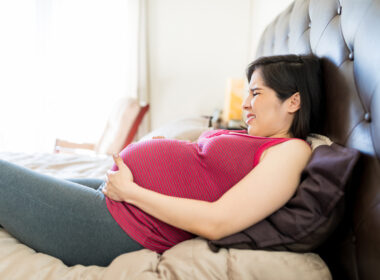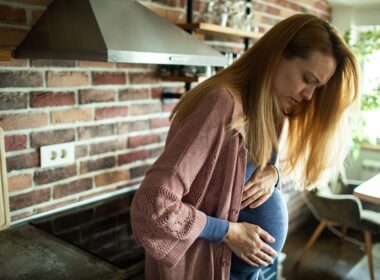Dear friend,
53-year-old Jennifer Aniston made headlines recently while discussing the many unsuccessful rounds of in vitro fertilization (IVF) she endured in her erstwhile struggle to become a mother. Her interview has resonated with women all over the country who know all too well that IVF is not a baby guarantee for everyone, and especially for those in their late 30s and 40s.
But even for those who successfully achieve pregnancy with IVF, the heartbreak and struggle may not stop there. This week, we’re discussing recent research that confirms the elevated risks for serious maternal blood pressure issues in some types of IVF pregnancies, and the elevated risks for developing childhood cancers in babies conceived using particular forms of IVF.
Natural Womanhood believes that while babies conceived via IVF are equal in dignity to babies conceived naturally, couples struggling with infertility deserve to be truly informed about the risks of IVF to themselves and any children conceived during the process. They also deserve to know that there are other options available for treating many of the root causes that contribute to fertility struggles—and that these restorative options carry far less risk to women and their babies.
Action call this week: The holidays can be an especially difficult time of year for couples struggling with infertility. Consider reading the following articles from the NW Archives, so you can better accompany those in your life who are carrying this uniquely painful cross this season:
– Interview: How the Holidays Are Particularly Hard for Couples Struggling with Infertility
– How to Lend a Hand When Someone You Care About is Getting Help with Infertility
All the best,
Grace Emily Stark
Editor
Natural Womanhood
| Study: Children born after common fertility treatment may have heightened cancer risk No difference in overall childhood cancer rates was seen when children conceived naturally were compared with those conceived using ART in aggregate, but when the type of ART was considered, an important difference emerged. Children conceived using previously frozen embryos had a 65% higher risk of developing cancer during childhood compared with children conceived naturally. Click here to read the full article. |
| All forms of IVF carry risk, but one in particular carries significant risk for preeclampsia. Which one is it, and why? Fascinating research from 2019 suggests that the absence of a corpus luteum could plausibly explain why women who undergo IVF with programmed frozen embryo transfer (FET) are at higher risk of developing hypertensive disorders of pregnancy, particularly preeclampsia. Click here to read the full article. |
| From the NW Archives: IVF and Restorative Reproductive Medicine stories: What they have in common, and how they differ With RRM, you improve more than just your chances of conceiving, you improve your reproductive health, which has positive implications for the rest of your body, too. And with RRM, you actually treat the underlying causes that are preventing you from getting pregnant in the first place. Click here to read the full article. |




